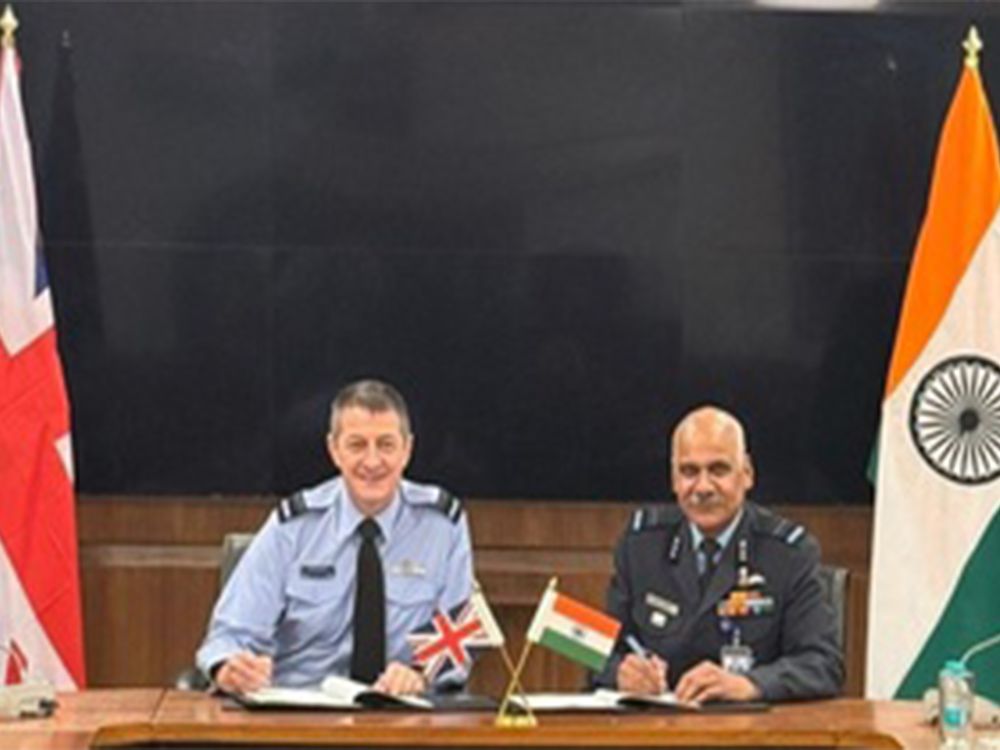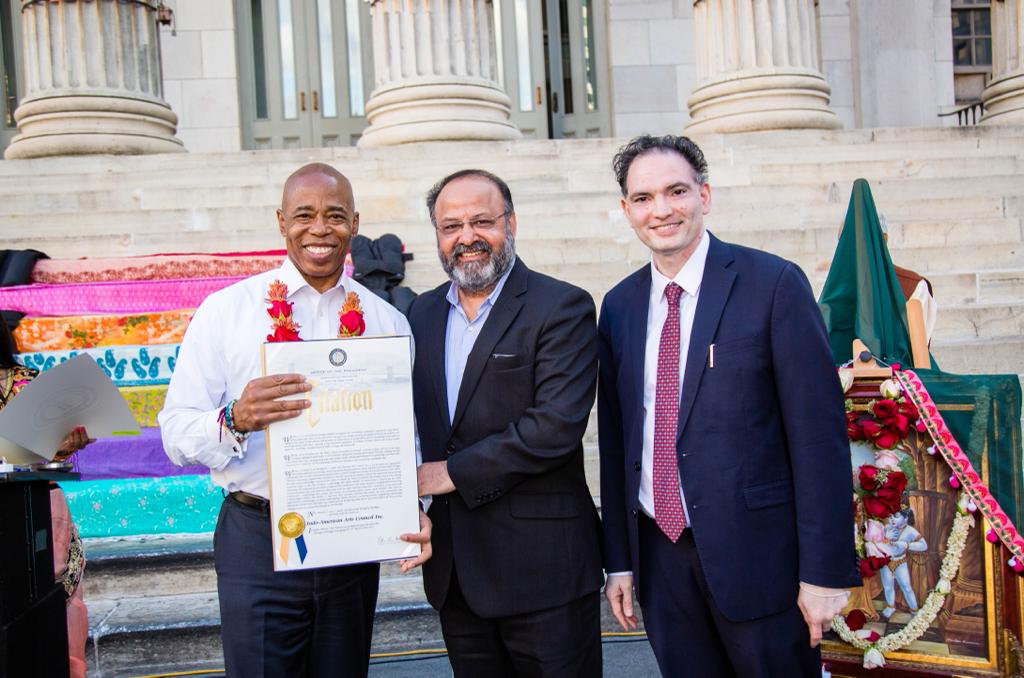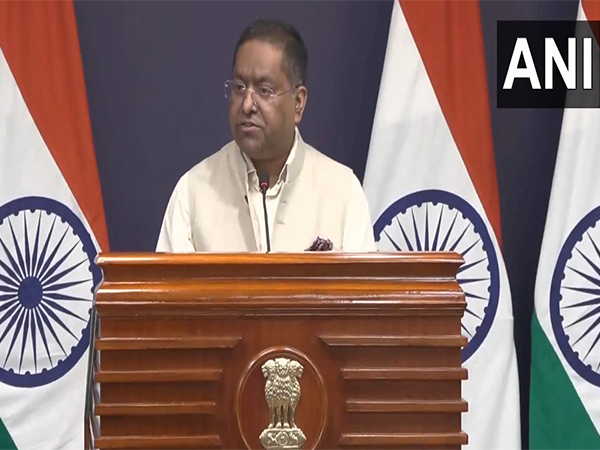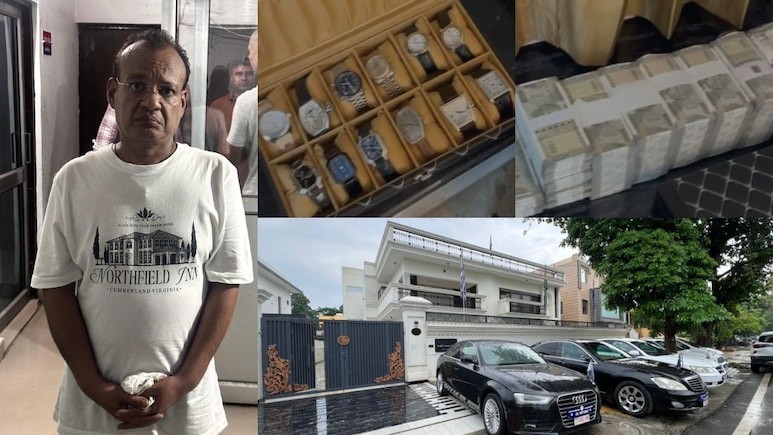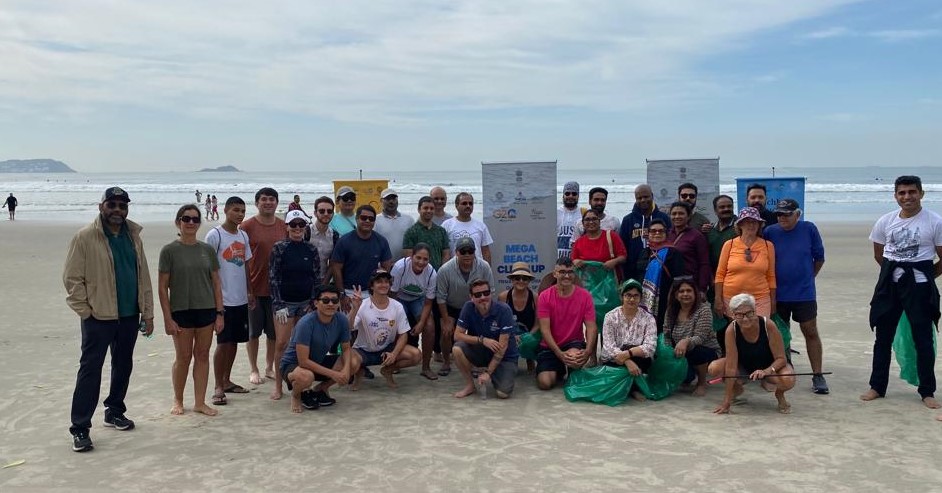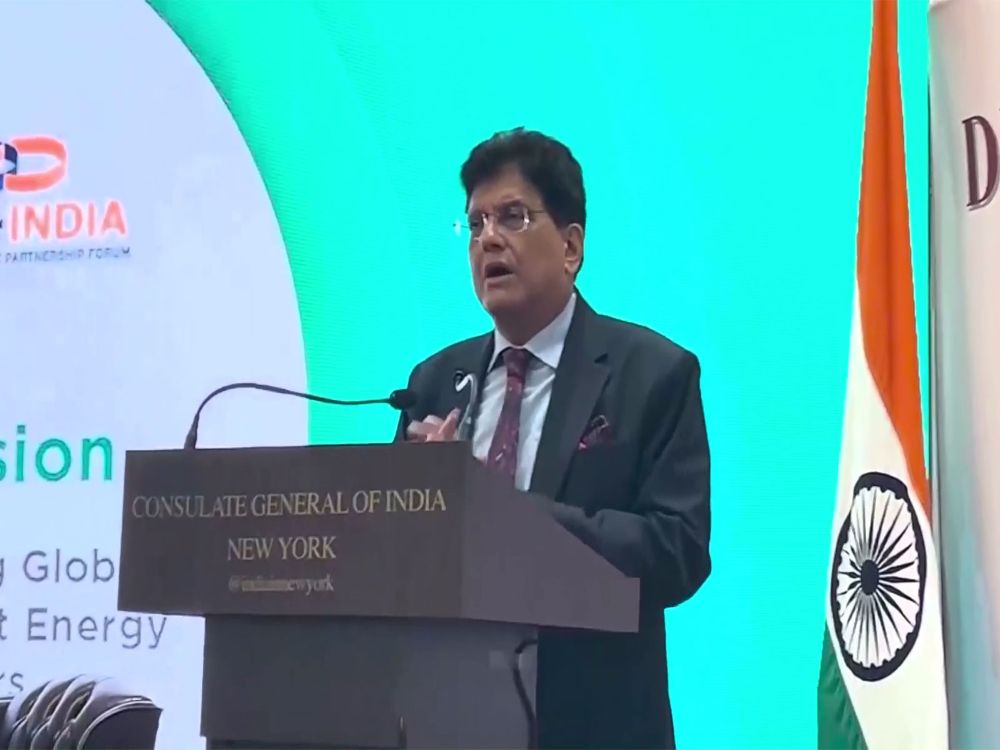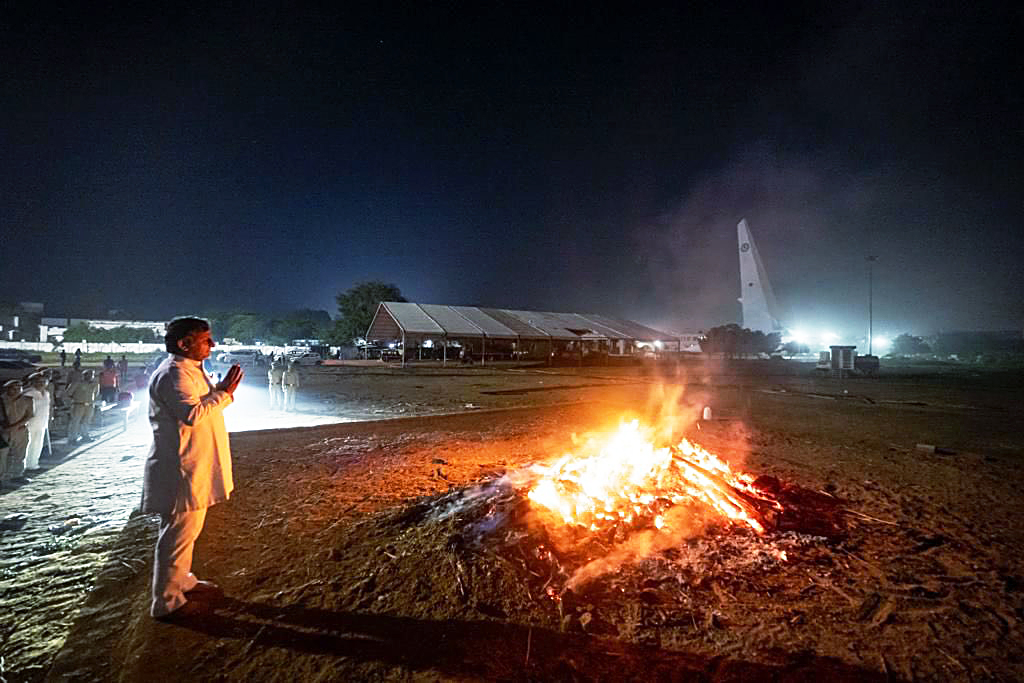Release of Indian navy veterans from a Qatari prison. Inauguration of a Hindu temple in the UAE. What is driving India’s close relations with the Middle East states?
Our Bureau
Dubai/Doha/New Delhi
On Monday morning, former Indian Navy personnel landed at the Delhi airport, raised chants of “Bharat Mata ki Jai” and lauded Prime Minister Narendra Modi’s personal intervention in their case following their release from a Qatar court after months of detention in the Gulf country.
Earlier, the Ministry of External Affairs announced the release of the Indian nationals who were detained in Qatar. “The Government of India welcomes the release of eight Indian nationals working for the Dahra Global company who were detained in Qatar. Seven out of the eight of them have returned to India. We appreciate the decision by the Amir of the State of Qatar to enable the release and home-coming of these nationals,” the statement said.
On December 28, 2023, Qatar’s Court of Appeal commuted the death penalty awarded to all eight men in October, 2023.
It was huge victory for Indian diplomacy.
Under Prime Minister Narendra Modi, India has become much closer to Qatar and UAE.
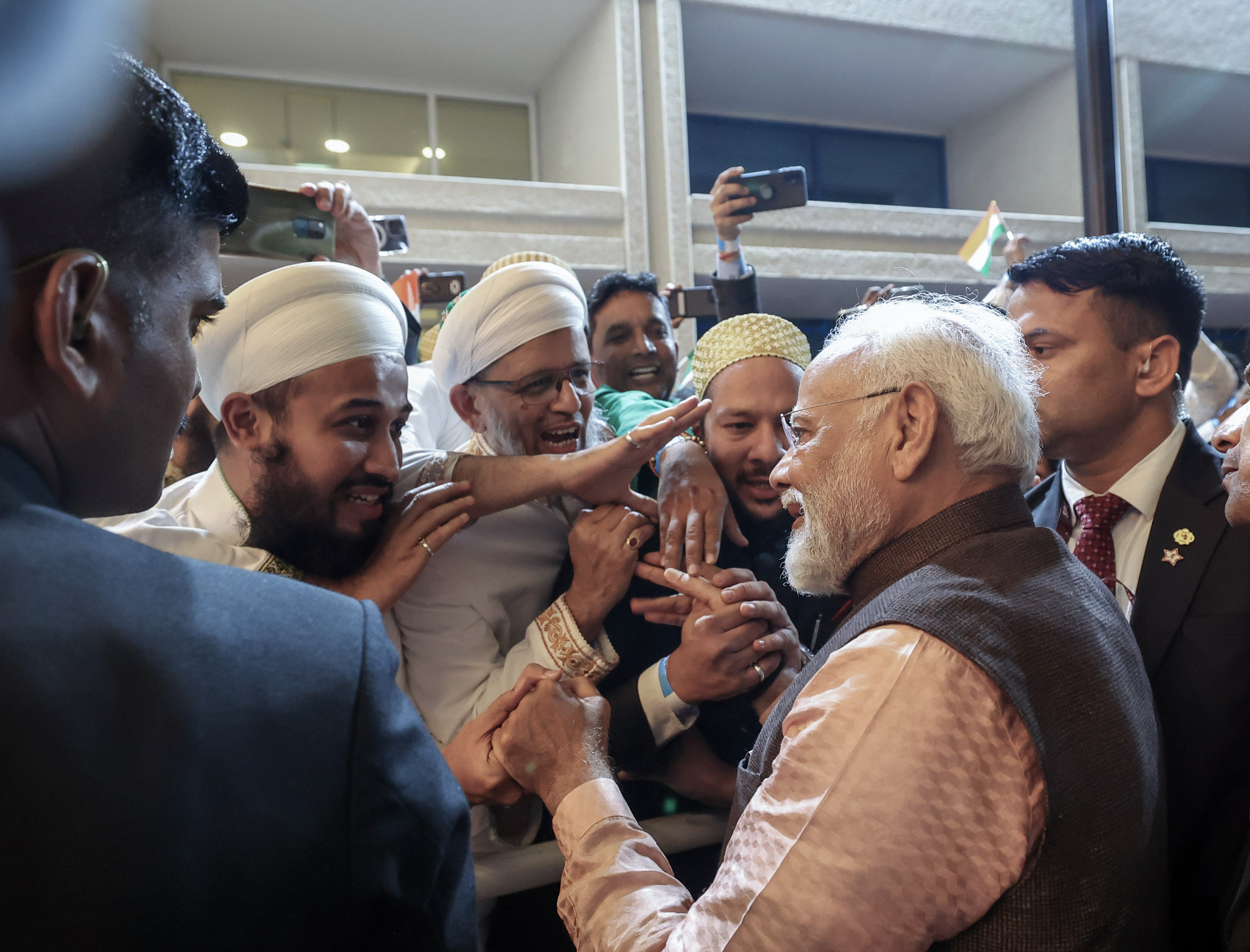
On Thursday, Prime Minister Narendra Modi touched down in the national capital from Doha after concluding his two-nation visit to the UAE and Qatar. He travelled to the United Arab Emirates on an official visit from February 13-14 and Qatar from February 14-15.
PM Modi was accorded a ceremonial welcome on his arrival in Doha on Thursday and held a bilateral meeting with the Emir of Qatar, Sheikh Tamim bin Hamad Al Thani. The meeting was also attended by the External Affairs Minister, S Jaishankar and National Security Advisor (NSA), Ajit Doval.
During the meeting, PM Modi thanked the Emir of Qatar for facilitating the release of Indian Navy veterans arrested in Doha in an alleged espionage case. He also extended an invitation to the Qatari leader to pay an official visit to India.
“Prime Minister thanked His Highness the Amir for his support for the welfare of the Indian community and in this regard expressed his deep appreciation for the release of eight Indian nationals of Al Dahra company. We are extremely gratified to see them back in India. PM invited His Highness the Amir to pay a visit to India,” Foreign Secretary Vinay Kwatra during a briefing on PM’s visit to Qatar.
On his arrival in Doha, PM Modi received a warm welcome from the Indian diaspora outside his hotel. People holding the Tricolor and gifts for PM Modi chanted his name and ‘Bharat Mata Ki Jai’.
He also honored a series of engagements in the UAE and reached Qatar after inaugurating the first Hindu Temple in Abu Dhabi. The majestic BAPS temple, which is the first Hindu temple in Abu Dhabi, was inaugurated by Prime Minister Modi on February 14. Minister of Tolerance and Coexistence for the UAE, Sheikh Nahayan Mabarak Al Nahyan, was also present at the inauguration.
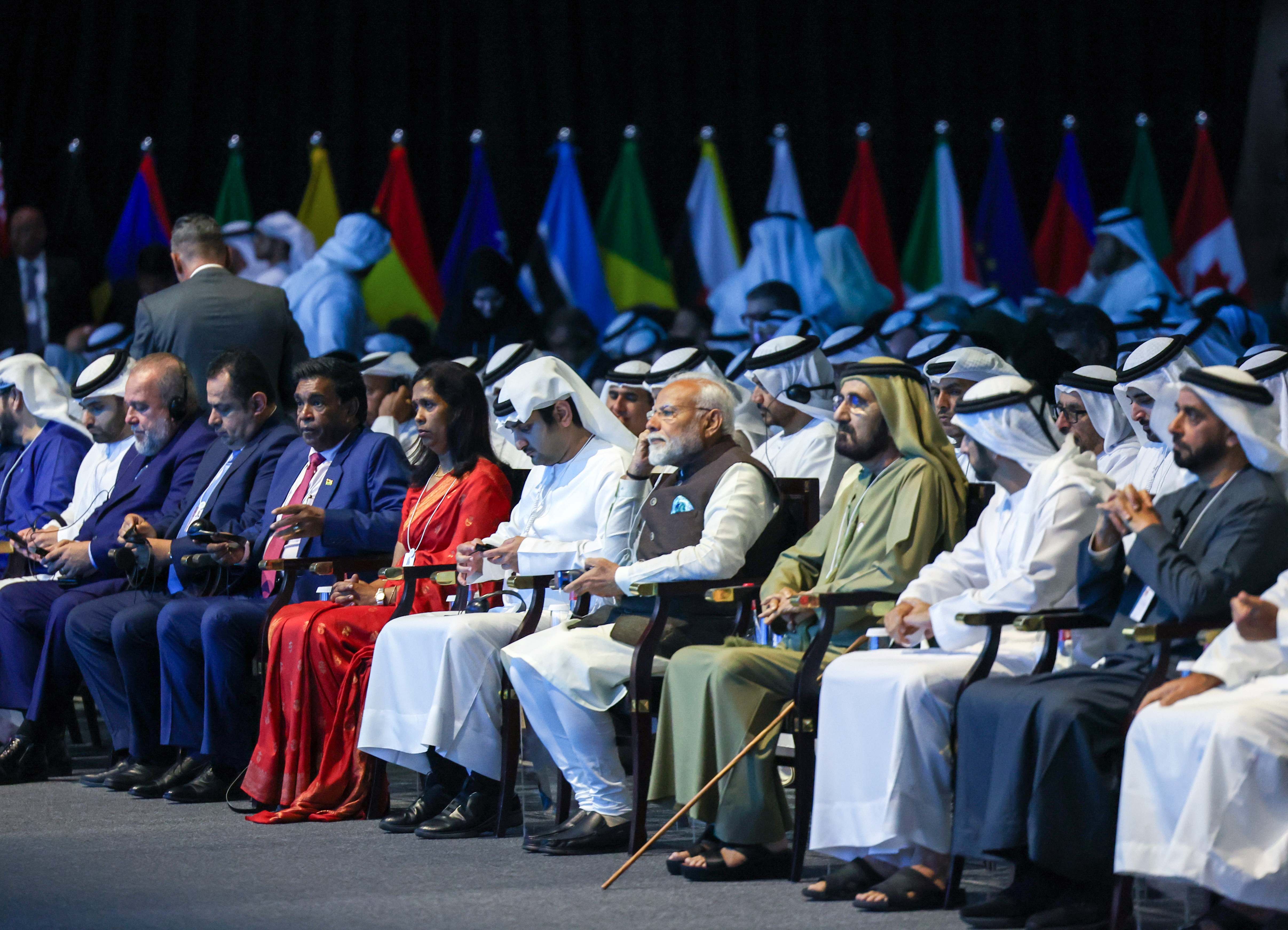
Prime Minister Narendra Modi thanked the Amir of Qatar, Sheikh Tamim bin Hamad Al Thani for taking care of the over 8 lakh-strong Indian community in Qatar, the Ministry of External Affairs said in a press release. Modi conveyed India’s commitment to further expanding and deepening bilateral cooperation with Qatar.
The Prime Minister was given a ceremonial welcome at the Amiri Palace on arrival. Thereafter, both sides held delegation-level and restricted talks. The discussions covered a wide array of topics, including economic cooperation, investments, energy partnerships, space collaboration, urban infrastructure, cultural bonds and people-to-people ties. The two leaders also exchanged views on regional and global issues, the MEA said.
Amir reciprocated the Prime Minister’s sentiments and expressed appreciation for India’s role as a valued partner in the Gulf region. The Amir also appreciated the contributions of the vibrant Indian community to Qatar’s development and their enthusiastic participation in various international events held in Qatar.
Earlier, Modi, during his address at the World Governments Summit in Dubai, highlighted India’s transformative reforms towards the idea of ‘Minimum Government, Maximum Governance’.
Modi delivered a special keynote address on the theme of the Summit – ‘Shaping the Future Governments’ on Wednesday, according to the Ministry of External Affairs.
In his address, Prime Minister shared his thoughts on the changing nature of governance. He highlighted India’s transformative reforms based on the mantra of “Minimum Government, Maximum Governance”.
“My biggest principle has been ‘Minimum government, maximum governance’. I have always emphasized creating an environment in which a sense of enterprise and energy in citizens grows. I believe that it is the job of the government to ensure that government interference in people’s lives is minimal,” PM Modi said in his address.
Sharing India’s experience on how the country had leveraged digital technology to further welfare, inclusivity and sustainability, he called for a human-centric approach to governance. He also underlined India’s focus on people’s participation, last-mile-delivery and women-led development to achieve an inclusive society.
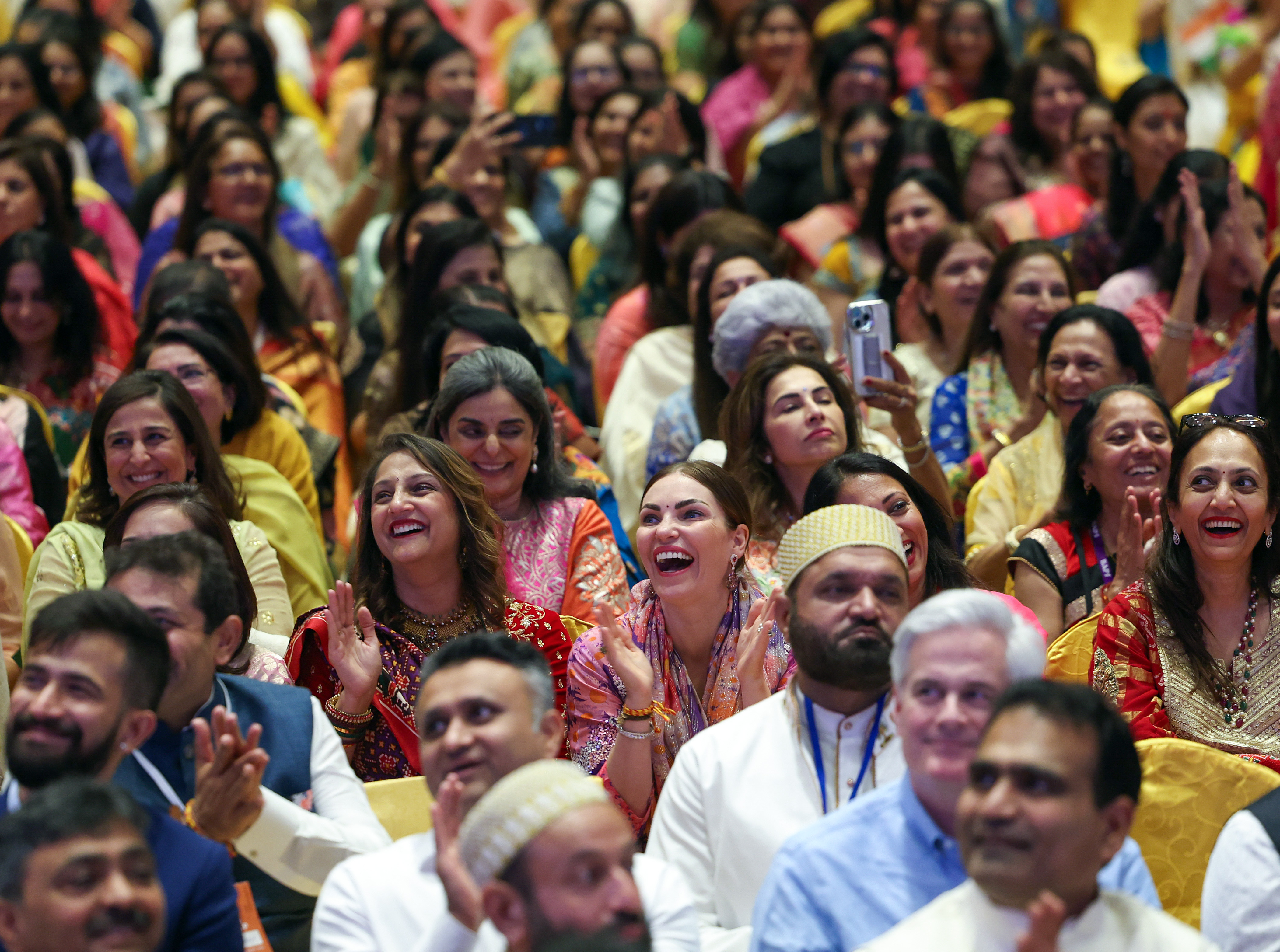
“We will have to create global prototypes for emerging challenges like AI — Artificial Intelligence and cryptocurrency, and cybercrime. We will have to give priority to our national sovereignty and also keep the dignity of international law,” the Prime Minister added.
PM Modi elaborated on the leadership role played by India as the chair of G20 last year, on a wide range of issues and challenges facing the world. In this context, he highlighted the efforts made by India to bring development concerns facing the Global South to the center-stage of global discourse.
“Today, when we are transforming our country, shouldn’t there be reform in the global governance institutions as well? We have to promote the concerns of the developing world and the participation of the Global South in global decision-making,” PM Modi added.
Calling for reform of multilateral institutions, he also pushed for greater voice for the Global South in its decision making. India, he stressed, will continue to contribute to global progress based on its role as a “Vishwa Bandhu”.
PM Modi participated in the summit as Guest of Honor at the invitation of UAE Vice President and Dubai Ruler, Sheikh Mohamed bin Rashid Al Maktoum. Prime Minister Modi was also the Guest of Honor at the World Governments Summit in 2018, the MEA release stated.
The summit saw the participation of 20 world leaders, including 10 Presidents and 10 Prime Ministers. Governments and delegates from over 120 countries were represented at the global gathering. Modi, with his speech, made a huge impact.
The visit by Indian prime minister achieved many milestones which were unthinkable just a few years ago.

















